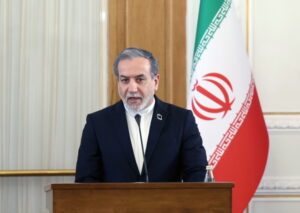There have been rapid developments regarding the Crete-Cyprus-Israel electrical cable, as for the first time in several weeks, there appears to be a positive atmosphere between the two sides, with the possibility of finalizing the agreement within the next few hours.
This shift was confirmed by statements made late yesterday by the President of Cyprus, Nikos Christodoulides, who mentioned progress in discussions and ongoing communications with Greek Prime Minister Kyriakos Mitsotakis. Christodoulides is scheduled to meet Mitsotakis on Thursday, September 19th, in Athens. Christodoulides will be attending an event organized by the Union of Editors of Athens Daily Newspapers and the Cyprus Embassy in memory of the late Giannos Kranidiotis, marking 25 years since the Falcon plane crash in September 1999. Greek Foreign Minister Giorgos Gerapetritis will also be present.
According to Kathimerini Cyprus, if all goes smoothly, the issue could be resolved as early as today, Friday, September 13th, with a scheduled Cabinet meeting at 4 p.m.
President Christodoulides told reporters yesterday that talks on the GSI are progressing positively, and there is progress in negotiations. He also confirmed that the United Arab Emirates, where he recently visited, has shown interest in the project.
The fact that officials are now openly discussing the electrical cable, following a period of awkward silence after Tuesday’s critical meeting in Nicosia, attended by Greek Energy Minister Theodoros Skylakakis, is another positive sign that previously irreconcilable differences between the two countries are being smoothed over. The goal is a common approach, with mutual concessions that could lead to the project’s realization.
Key Points
What are the factors leading to Cyprus’ shift in stance? According to sources, recent developments were influenced by modifications to the agreement’s terms. Athens took a step back and agreed to equally share the geopolitical risks of the project between the two countries. Initially, the cost allocation for the electrical connection was set at 63% for Cypriot consumers and 37% for Greek consumers, but this has now been adjusted to a 50-50 split. This change is crucial in terms of risk-sharing in the event of Turkish involvement or other incidents that could lead to the project’s cancellation.
Regarding other aspects of the agreement, Cyprus has expressed willingness to contribute €125 million over five years to recover the project’s costs through the Emissions Fund. Additionally, Cyprus will participate with €100 million in the GSI’s share capital, as originally planned.
The positive atmosphere is further bolstered by a series of supportive statements from other countries, highlighting the project’s geopolitical significance. For the first time yesterday, Israel’s government expressed support for the major project, addressing Cyprus’ concerns over the geopolitical factor. Israel’s Energy Minister stated that the electrical connection is a top priority for Israel as it strengthens regional security, provides access to diversified energy markets, and integrates Israel into the European energy network.
The United States continues to openly support the project, with ongoing statements from U.S. Ambassador to Cyprus Julie Fisher and U.S. diplomat Geoffrey Pyatt, who spoke at the Thessaloniki International Fair last weekend.
Ask me anything
Explore related questions





